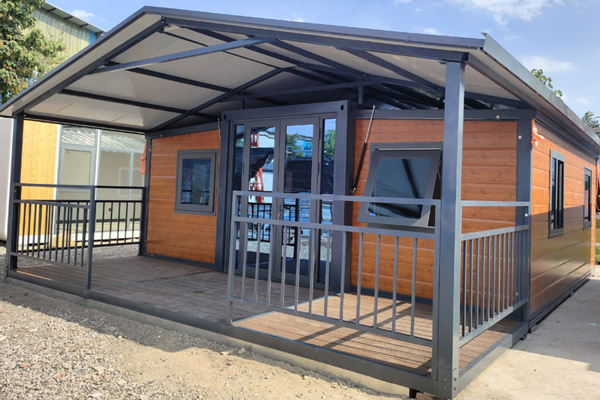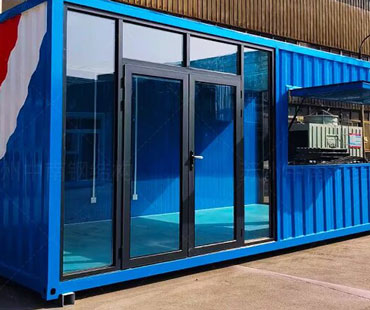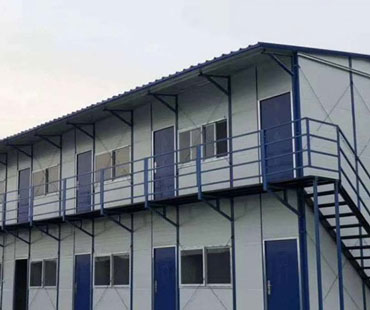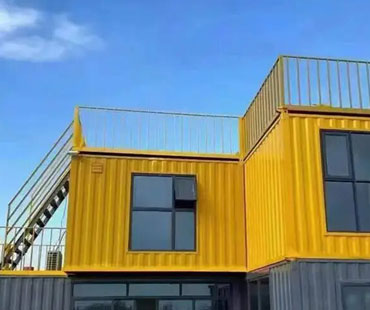The logistics industry is undergoing a significant transformation, driven by advancements in container technology. As global trade continues to expand, the need for more efficient, reliable, and intelligent logistics solutions has never been greater. Innovations in container technology, particularly in the areas of intelligence and automation, are reshaping how goods are transported, tracked, and managed across the supply chain. This article explores the latest developments in smart containers and automated logistics systems and their impact on the industry.
1. Smart Containers: Enhancing Visibility and Control
At the forefront of innovations in container technology are smart containers—traditional shipping containers equipped with advanced sensors and IoT (Internet of Things) devices. These technologies provide real-time data on the condition and location of cargo, enhancing visibility and control throughout the logistics chain.
a. Real-Time Tracking
Smart containers use GPS and RFID (Radio Frequency Identification) technology to provide real-time tracking information. This capability allows logistics managers to monitor the precise location of containers throughout their journey, reducing the risk of loss or theft. With accurate tracking, companies can optimize their routes and schedules, leading to improved efficiency and reduced costs.
b. Environmental Monitoring
In addition to location tracking, smart containers can monitor environmental conditions such as temperature, humidity, and pressure. This is particularly crucial for transporting sensitive goods, such as pharmaceuticals or perishable food items. By ensuring that products remain within specified parameters, companies can maintain product quality and comply with regulatory requirements, ultimately reducing waste and enhancing customer satisfaction.
2. Automation in Container Handling
Automation is another key innovation reshaping container logistics. The integration of automated systems in ports, warehouses, and distribution centers is streamlining operations and improving efficiency.
a. Automated Guided Vehicles (AGVs)
Automated Guided Vehicles are increasingly being used to transport containers within ports and warehouses. These unmanned vehicles can navigate through predetermined routes, reducing the need for human intervention and minimizing the risk of accidents. AGVs can efficiently move containers from ships to storage areas or directly to trucks for further distribution, significantly reducing turnaround times.
b. Robotic Systems
Robotic systems are being employed for tasks such as loading and unloading containers. These robots can work around the clock, increasing productivity and allowing human workers to focus on more complex tasks. By automating repetitive operations, logistics companies can enhance efficiency and reduce labor costs, leading to greater profitability.

3. Integration of Artificial Intelligence
The application of artificial intelligence (AI) in container logistics is revolutionizing decision-making processes. AI algorithms analyze vast amounts of data generated by smart containers and automated systems to optimize logistics operations.
a. Predictive Analytics
AI-powered predictive analytics can forecast demand trends, helping companies adjust their logistics strategies accordingly. By analyzing historical data and market trends, logistics managers can make informed decisions about inventory levels, shipping routes, and delivery schedules. This proactive approach minimizes delays and enhances overall supply chain efficiency.
b. Autonomous Shipping
The concept of autonomous shipping is gaining traction, with several companies exploring the use of unmanned ships for transporting containers. These vessels, equipped with advanced navigation and communication technologies, promise to reduce labor costs and improve safety. While still in the experimental stages, autonomous shipping could represent the future of maritime logistics, transforming how goods are transported across the globe.
4. Challenges and Considerations
While the innovations in container technology offer numerous benefits, they also present challenges that must be addressed. Cybersecurity concerns related to IoT devices and automated systems are paramount, as logistics companies must protect sensitive data from potential breaches. Additionally, the initial investment in technology infrastructure can be substantial, posing a barrier for smaller companies.
Innovations in container technology, driven by intelligence and automation, are reshaping the logistics landscape. Smart containers enhance visibility and control, while automation streamlines operations and improves efficiency. The integration of artificial intelligence further optimizes decision-making processes, allowing companies to respond swiftly to market demands. As the logistics industry continues to evolve, embracing these technological advancements will be essential for companies aiming to remain competitive in an increasingly complex global marketplace. By harnessing the power of innovation, the logistics sector can achieve greater efficiency, sustainability, and resilience, paving the way for the future of global trade.


